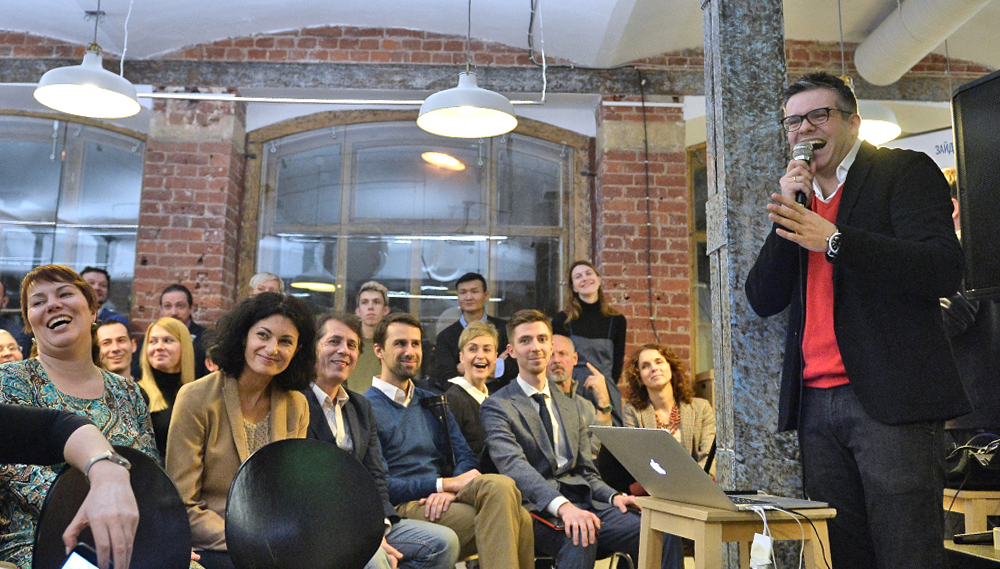
The first Platform in Moscow, November 2015.
Ramil SitdikovThe section is run jointly by RBTH and the Platform.
“The Platform is quite literally a platform where ideas and concepts find the necessary resources,” explains Nikita Tikhonov-Rau, documentary filmmaker, producer and social activist. The platform is a meeting place for people whose interests don't always intersect. “On the one hand, there are creative teams of directors, authors and producers who like to work on social topics and tell stories professionally. On the other are NGOs, socially responsible businesses, foundations, TV channels and news agencies – people who can bring the stories to a wider audience.”
The prototype for the Platform was the British project GoodPitch.
The first Platform took place in Moscow in November 2015, attended by more than 50 leading speakers from NGOs, business and media. It featured presentations of the top 8 projects concerning different social issues. All of them will be also presented here at rbth.com.
 The first Platform in Moscow, November 2015. Source: Ramil Sitdikov
The first Platform in Moscow, November 2015. Source: Ramil Sitdikov
The protagonists of all these stories, painstakingly gathered by independent journalists and project filmmakers, speak honestly about Russian life outside Moscow, all their ups and downs. The problems they face are not unique to Russia. We bet you’ve also encountered them at some point — young people leaving village life for urban comfort is nothing new. Older people sometimes feel alienated from active society as well. Every generation tries to draw a self-portrait and define itself, its purpose and identity, tagging itself as generation X or generation Y.
Sometimes it seems that social problems increase the gap between different groups. In this case, it turns out that social problems can unite people. “I deeply believe that regardless of where you live, the first step to any transformation must happen in your mind. Without this, any reforms will be ineffective," states Tikhonov-Rau.
This year the Platform will focus on children and family topics, and will be held on May 31, 2016, on the eve of International Children's Day. We invite movie makers, authors, producers and anybody with an idea regarding social films, clips and media campaigns related to the topic to take part in the event.
All rights reserved by Rossiyskaya Gazeta.
Subscribe
to our newsletter!
Get the week's best stories straight to your inbox